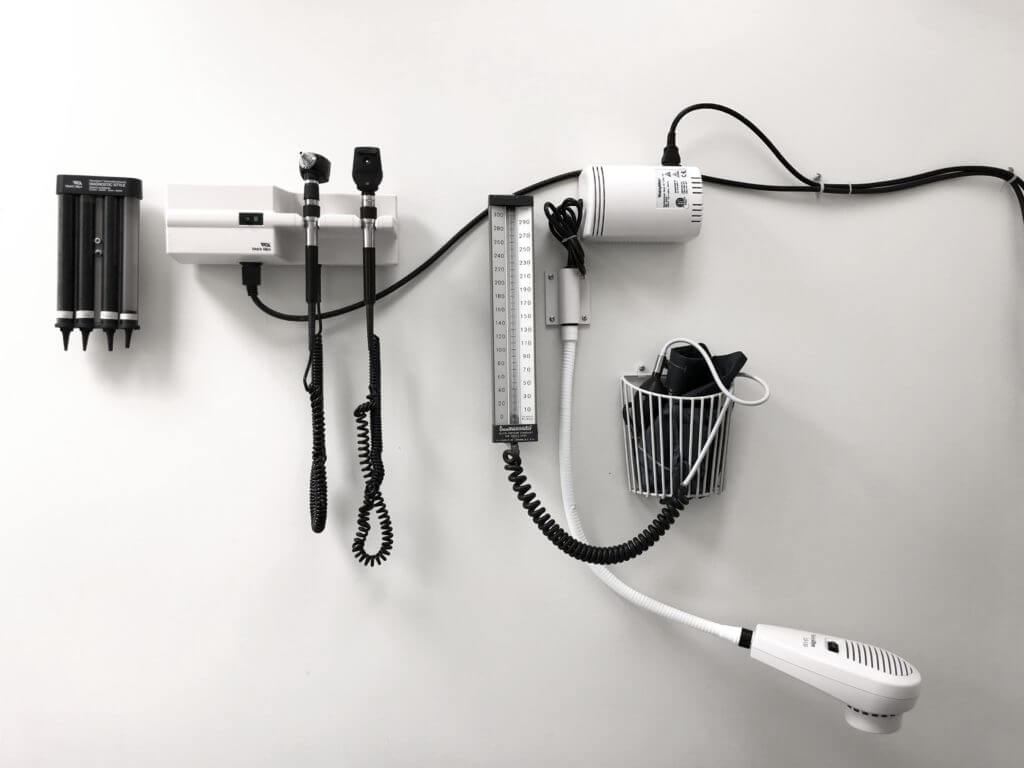Physicians work in a variety of different capacities. Some are hospitalists or employees of health groups. Some clinicians operate their own private practices. Others work in small medical centers.
And some work locum tenens.
According to a recent study, over 90,000 physicians plan to work locum tenens in the next 3 years. In fact, 94% of hospitals and healthcare administrators report that they currently hire locum tenens physicians in some capacity. The number of locum tenens physicians is expected to reach 120,000 by the year 2030.
But is locum tenens right for you?
Currently, about 5% of all physicians work locum tenens. And there are many reasons why they choose to go this route.
Considering signing on as a locum tenens physician? Here are the pros and cons of physician locum tenens to help you to determine if it’s the right choice for you.
Table of Contents
What is Locum Tenens?
The Latin phrase “locum tenens” refers to temporary work, or short-term work done as a “placeholder” for someone else.
Locum tenens physicians are independent contractors, but not all independent contractors are locum tenens. The term “locum tenens” is usually reserved for physicians and members of the clergy who are filling in to do the work in someone else’s absence.
What does it mean to be a locum tenens physician or independent contractor?
Independent contractors are essentially self-employed. Locum tenens physicians have to pay their own taxes and pay for their own benefits. The hospital or healthcare group you work with will not provide the benefits that they provide traditional employees.
Related: Physician Contracts: Independent Contractor or Employee
Which Physicians Practice Locum Tenens?
So why do some physicians opt to work locum tenens assignments rather than work as a direct employee of their healthcare facility? There are a variety of reasons why different physicians choose to work in this manner.
Locum tenens is an attractive option for many physicians, especially young doctors and physician assistants. Physicians just out of residency often work locum tenens as a way to experience various jobs that may exist. It’s also a lifestyle that suits PAs who still get hands-on experiences in a variety of fields.
Yet older, advanced practitioners work in this way as well. It’s a great opportunity for doctors who are looking to wind down their careers or work less as they near retirement.
Doctors in the middle of their career also work locum tenens jobs as a way to get experience in various locations or environments before deciding to take on a new, permanent position.
Other physicians work locum tenens as a way to make extra income. In some cases, they’re temporary physicians, moonlighting (working a second or third job) in order to supplement their income or pay off student loans.
Where do Locum Tenens Physicians Work?

Locum tenens physicians can (and do) work in every capacity in medicine. You’ll find them in large hospital systems, small healthcare groups, and even in private practices.
The opportunities often arise when another doctor is on sabbatical, on maternity leave, or when a hospital is understaffed.
Some private practices hire locum tenens physicians in peak seasons when they need an additional doctor on hand. If someone goes on leave or falls ill unexpectedly, a locum tenens physician often steps in to do the job.
Related: Balancing Acts: Navigating Physician Moonlighting for Physicians in Residency & Practice
The Pros and Cons of Locum Tenens
Locum tenens opportunities are everywhere — but is that the right choice for you? It is especially important to consider these factors during the age of Covid. Here are some of the pros and cons of working as an independent contractor in this capacity.
Locum Tenens Physicians Need to Have Their Own Health Insurance
Independent contractors do not receive benefits packages as traditional employees do. And that includes health insurance. So is that a pro or a con? Depending on how you look at it, it can be either.
The worst part about not having health insurance through your employer is that you’ll have to seek it out (and pay for it) yourself. Your employer will not subsidize your premiums. You will be fully responsible for paying your monthly premiums on your own, as well as any and all co-payments and other fees.
An employer-sponsored health insurance plan can cost as little as a few dollars per week. Having your own health insurance plan can cost several hundred dollars in premiums each month.
However, there is an upside to having your own health insurance.
For starters, you can choose any plan that you want. You will not be limited to the plan that your employer provides. You’ll have the flexibility to select any plan from any insurance provider that offers coverage in your state.
And, when you leave the position, you won’t have to worry about switching to new insurance (whose network may not include your preferred physicians). You can carry your individual health insurance plan with you from job to job, regardless of where you work in the United States.
Monthly premiums for an individual health insurance plan will cost you. But if your medical expenses (including the cost of monthly premiums) exceed 7.5% of your AGI, you can deduct the excess when you file your taxes.
Need to find your own private health insurance? You can choose a plan through the Healthcare.gov marketplace, through an individual broker in your state, or through the National Association for the Self-Employed.
Related: Understanding Your Physician Contractor Agreement
Locum Tenens Physicians Have More Freedom
Locum tenens physicians have more flexibility and more freedom than physicians that work as traditional employees.
Why?
Because as an independent contractor, there are only so many restrictions your employer can place on you.
You’ll have the freedom to do the type of work you want to do and avoid work you don’t enjoy. You can also choose to work full- or part-time.
You’ll have more freedom to work when and where you want. You’ll also have the ability to hone your skills and see which direction you want to go into further in your career.
Employed physicians are bound to and limited by specific rules and responsibilities.
Once you sign a contract and agree to those terms, you won’t be able to deviate from them. Locum tenens physicians usually have much more flexibility.
One other benefit is that you won’t have to worry about setting policy, deciding on regulations, or revising administrative rules. You’ll have the freedom to focus strictly on patient care and practicing medicine.
Perhaps the best part of all is the ability to enjoy a better work-life balance. The freedom of working as an independent contractor allows you to create and control the situation that works best for you. Yet freedom sometimes comes at a price, and some physicians find that more freedom often means less stability.
If you enjoy setting policy and partaking in administrative tasks, you probably won’t get to do that as a locum tenens physician. You’ll need to adapt to the way things are done. You won’t have much (or any) say in changing how the practice or hospital operates.
How Locum Tenens Work Impacts Your Salary

Physicians in private practice often earn more, but locum tenens work can be quite lucrative. It all depends on what you do, how much they need you, and where you work.
Locums positions pay based on three main things:
Experience, specialty, and region.
As with all physicians and advanced practice providers, some states pay higher rates than others.
Certain specialties pay more than others. According to Nomad Health, physicians specializing in areas like neurosurgery, radiology, and anesthesiology are paid the highest locum tenens salaries from $550,000 and higher. Physicians working in oncology and OB/GYNs have mid-range salaries, at about $430-500,000. Psychiatry and pediatric physicians tend to be paid the least, in about the $280-365,000 range.
Your level of experience is almost always commensurate with your salary.
Locum tenens positions exist because there is often a shortage of qualified, licensed physicians. Hospitals and practices in certain areas may find it more difficult to acquire top talent than in other cities. Where you work and how desperately your services are needed will factor into how much you’re paid.
Just keep in mind that these are temporary positions. If your goal is to have a steady stream of income, you’ll need to find another locums position or a full-time job when your current one ends.
How Locum Tenens Work Affects Your Benefits Package
As an independent contractor, you will not receive a comprehensive benefits package. Only full-time employees get those. You won’t get paid sick days or paid vacation days. You won’t be eligible to partake in employer-sponsored retirement plans or health insurance plans.
But you will have the freedom to make your own decisions about your benefits.
You can contribute to your own IRA or retirement account, health insurance provider, and choose your own life and disability insurance policies.
You’ll be responsible for paying it all on your own, but you’ll be able to go with the exact plan or policy that you want, and you’ll experience all of the tax benefits that come along with it. With proper planning, you may be able to drop your effective income tax rate by about 10% from what you’d pay as an employee.
Locum Tenens Offers the Opportunity to Travel
If you love to travel, working locum tenens provides a great opportunity to do so.
Locums work exists in hospitals and private practices all around the country. It’s a great way to experience what it’s like to live in a different state or a different region of the country that you’ve never visited before.
Locums work allows you to experience new places, check out new cities, and work in different hospitals and practices. It’s also a way to feel out different employment settings.
As a locums physician, it’s entirely up to you to take the assignments that you want. You’ll never have to go anywhere that you don’t want to.
Accomodations
Keep in mind that many locum tenens opportunities provide you with transportation and lodging while you’re there. And this can get tricky.
Be clear up front about what type of accommodations you expect. The lodging they offer you may not be up to your standards. If that’s the case, you may want to consider paying the difference and upgrading to a place where you’ll feel more comfortable.
And while travel is a huge perk for many physicians, it can be a drawback for others. The more you have to travel, the less time you’ll have to spend with your family and friends. For some, that can be a huge negative.
One of the best parts about working locum tenens is that you get to make the decisions that are right for you.
If you want to be a full-time traveling physician, you can. But if you don’t want to travel away from home, you don’t have to. Depending on where you live, there might be dozens of locums positions in advanced practices waiting to be filled in your own town.
Hire a Physician Contract Review Specialist
Locum tenens positions will require that you sign a contract. Most locums positions are filled by healthcare staffing agencies. The hospital will contact the staffing agency, and their recruiters will contact you for them.
So, in addition to your contract, you may also have to sign an agreement with the agency.
Before signing any contract, it’s important to hire a contract review specialist to review it for you. That is the best way to ensure that the contract is fair and inclusive of all that it needs to contain.
Termination clauses. Credentialing. Pay rates. Details about malpractice insurance. These are just a few of the most important elements, and they need to be detailed clearly.
Always hire a contract review specialist to protect yourself and check your contract before you sign or make any commitments.
Conclusion
Trying to decide if locums tenens work is right for you?
Just like working as a full-time employee, there are pros and cons.
Remember this: locums positions are temporary. They usually range from two weeks to two months. The best way to know if it’s right for you is to try it and see what you think.
If you love the experience, you’ll know that you’re ready to take on more temporary assignments. And if you’re not thrilled about it, just chalk it up to experience and move on.
It doesn’t have to be a long-term commitment. And that, in itself, may be the biggest benefit of all.
Subscribe to our email newsletter for expert tips about finances, insurance, employment contracts, and more!







































